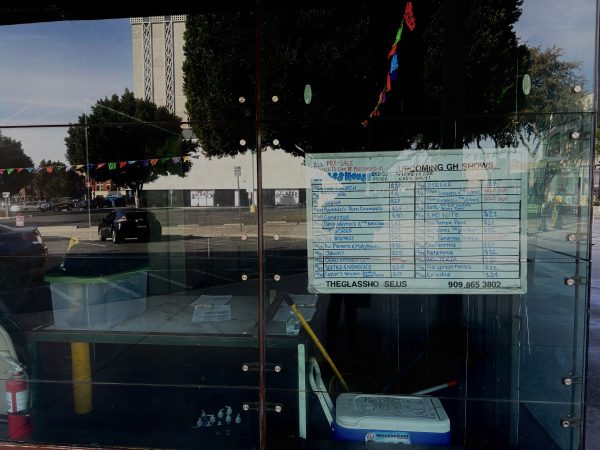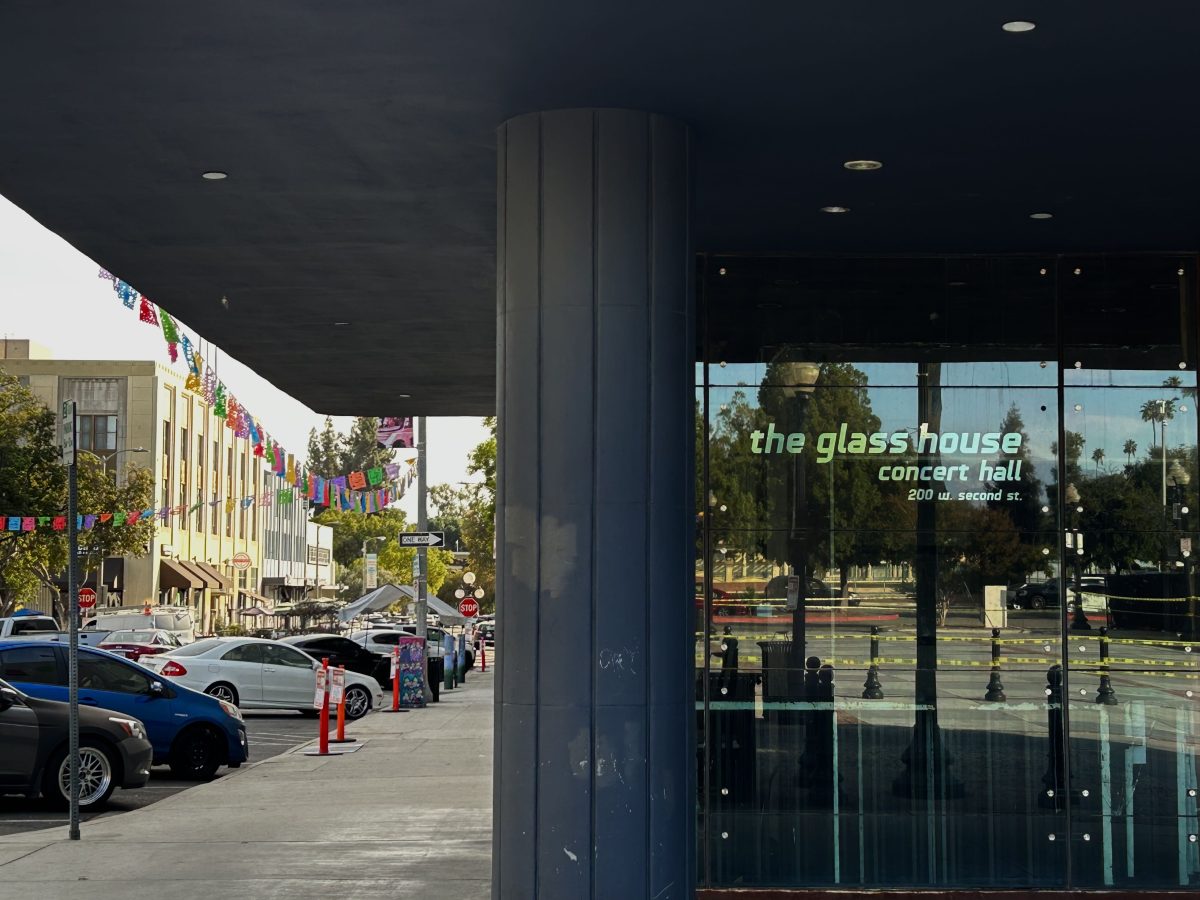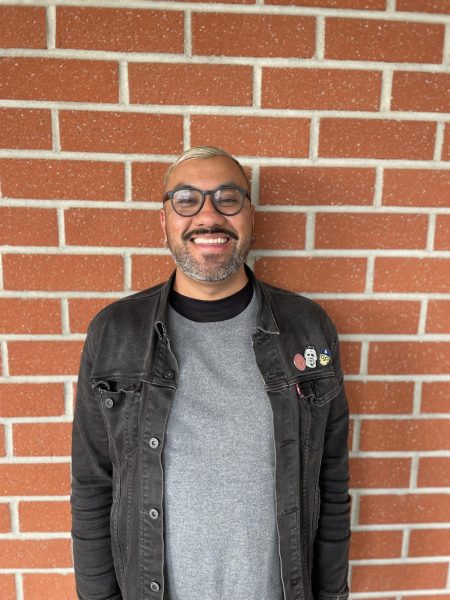Memories suffused the elongated gap in between the question and his answer.
Jesus Perez Jr., 36, allowed his pensive mind to run through his memories from his childhood growing up in Pomona.
“There were two of them (sides of Pomona), right? Growing up, as a kid there’s Pomona during the day and then there’s Pomona during the night,” Perez said.
Like many rough neighborhoods, many parents told their kids to be home by a certain time. Perez’s childhood was no different. “Once the street lights turned on, I had to go home because that’s when the riff-raff started. Other than that, I just call it a typical hometown, you know,” Perez recounted.
The danger of Pomona is evident to the locals, but it is magnified by the outsiders looking in. “Ghetto was thrown out there a lot,” Perez said.
Since the mid-90s, Pomona has gone through a renaissance, becoming a cultural haven nurtured by the youth.
The city’s resurgence correlated with the birth of the Glass House, a music venue located in the heart of downtown Pomona.
Local promoters and brothers Paul and Perry Pollett turned an old Thrifty Drugstore into an all-ages music club in 1996. Teenagers were given a safe place to release some of their angst in a healthy manner.
“It was just a really good opportunity to expose myself to different genres of music and just have somewhere to forget about problems,” Pomona native Rene Contreras, 33, said. “I think it really impacted my youth and the way I grew up and the person I am today.”
Contreras recalls hearing about the Glass House after a flier for a show on his friend’s three-ring binder caught his attention. His first show was a heavy metal concert for the Seattle band Himsa.
“I remember going and not knowing what to expect,” Contreras said. “I was 13.”
Before his first show, Rene’s friends painted an aggressive picture full of mosh pits and people shoving each other. They warned him about getting into fights, so he found the nearest wall and soaked in his first show as a wallflower.
“It was fun,” Contreras said. “I liked the energy and just how it was in Pomona and it was so close [to home].”
As an all-ages club, the Glass House allowed teens from Pomona to see bands like No Doubt, The White Stripes and Weezer in their backyards. Instead of relying on their parents to drive them to Los Angeles to watch their favorite acts, the Glass House was a bike ride away, a brisk walk away, a cheap bus ride away.
“It definitely affected me in a positive way,” Perez said.
“It made me, I don’t know, try new things, be adventurous and yeah, just to be out there … as opposed to sheltering in.”
Since he became a patron of the arts at a young age, Perez became a musician. During his teenage years, he played shows, at venues and backyard, but never played the Glass House. It would have been a dream to play at his hometown venue in his younger days.

The Glass House influenced Contreras to become a member of the music scene. He became an employee of the venue and worked his way up to becoming a booker. Contreras now helps curate a festival with the Glass House called Viva Pomona.
“A lot of kids go there, it’s a communal space where you can find things that are relatable to you and I think that goes a long way,” Contreras said. “There’s a lot of young musicians that cut their cheese there or play their first headline show there. If you see someone on stage that looks like you, it gives you aspiration to make you feel like you can do anything in the world and I think that’s very important.”
The Glass House continues to inspire the youth of Pomona. Visit Theglasshouse.us to see what new artists are keeping the scene alive.



